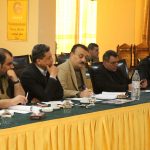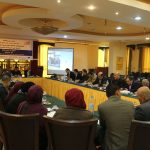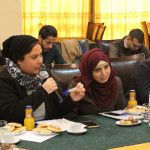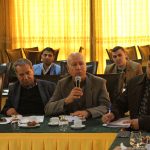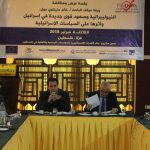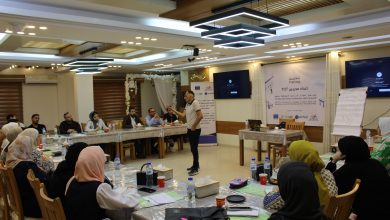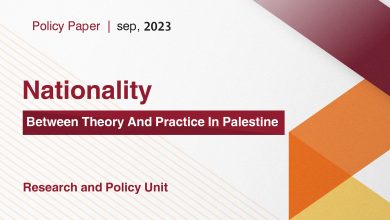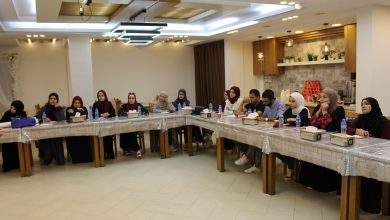“Neoliberalism, the rise of new powers and their impact on the Israeli policies;” by the researcher, Khaled Anabtawi
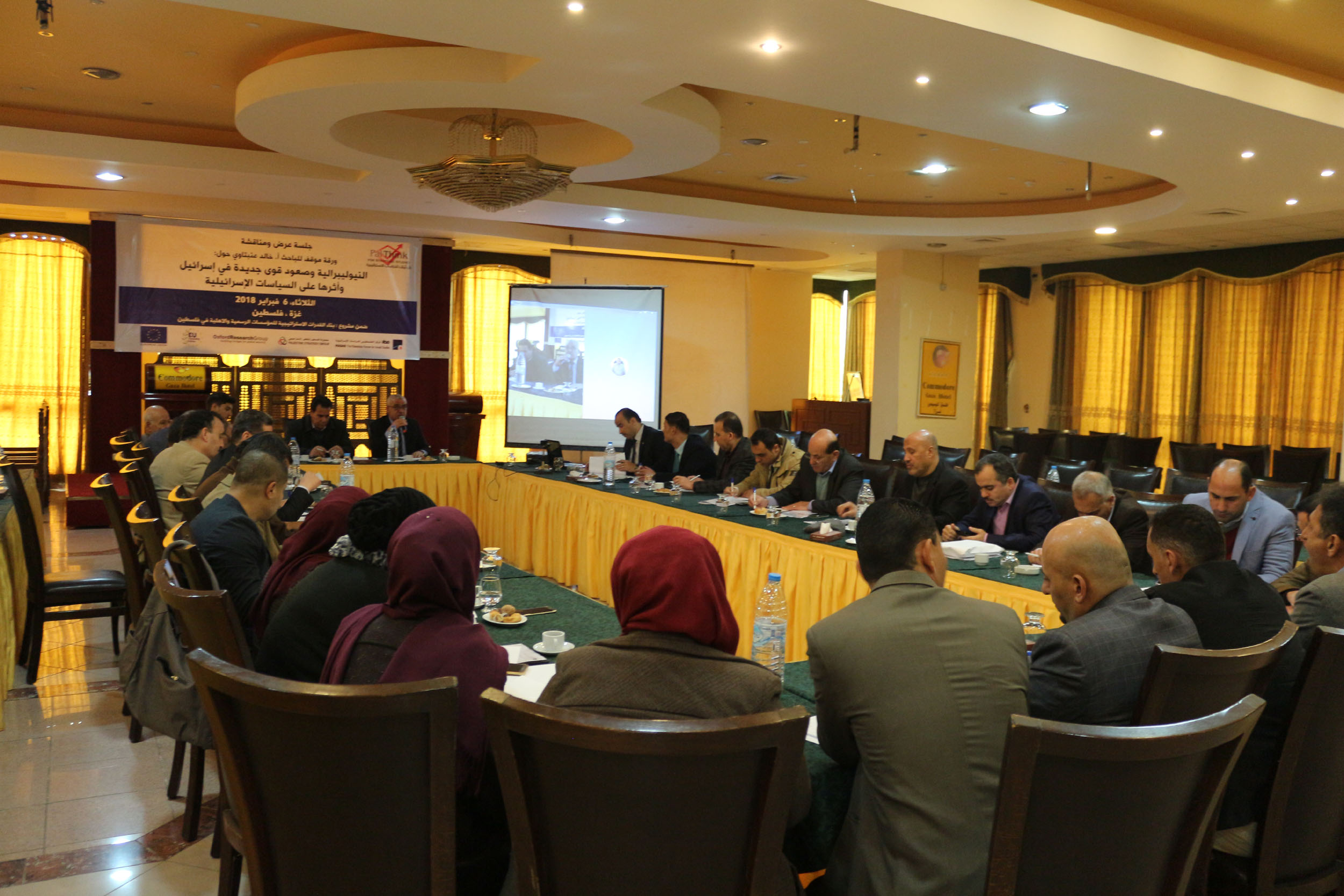
Date: Tuesday, February 6, 2018, 12:15 p.m. Location: Commodore Hotel, Gaza city, Palestine.
Background:
“Building Strategic Capacity: Empowering Civil, Political and Emerging Constituencies in Palestine and Israel” is an EU Peacebuilding Initiative-funded project that develops the ongoing work of the Palestine Strategy Group (PSG), the Palestinian Citizens of Israel Group (PCIG) and the Israeli Strategic Forum (ISF). This roundtable discussion was part of the PSG dimension of the project. Since being founded in 2008, the PSG has produced a considerable number of studies and strategic reports on the Palestinian issue. In cooperation with Pal-Think for Strategic Studies, the Palestinian Center for Israeli Studies (MADAR) and Oxford Research Group, the PSG will produce 12 research papers between 2017 and 2020 which deal with multiple themes and perspectives that then culminates in the publication of the Strategic Policy Manual “Palestine 2020”. This policy report will be presented at a major conference in Ramallah in 2020 and incorporate all the findings of the 12 PSG research papers as well as findings of the PCIG.
Workshop’s Attendees:
The workshop was conducted in the Gaza strip. Attendees included Mr. Omar Sha’aban, head of Pal-Think for Strategic Studies; Mr. Khaled Anabtawi, researcher and specialist in Israeli affairs for the Palestinian Forum for Israeli Studies (MADAR); Dr. Wajjeh Abu Zarifa, professor of political science, and distinguished writer from Gaza; and also, a diverse combination of 49 male and female journalists, writers, analysts and college students. 19 of the attendees were less than 30 years old, and 30 of them were above 30 years old.
Omar Sha’aban’s Contribution:
Mr. Omar Sha’aban began the session and welcomed all the attendees and noted that Pal-Think – based on its mission and continuous activities – is consistently working on what serves the Palestinian issue, for the sake of building an effective Palestinian strategy. In addition to this, he referred to the research paper as a great work which tackles a new important topic.
Mr. Khaled Anabtawi’s Contribution:
Mr. Anabtawi summarized his research paper in twenty minutes and began by giving a short description of the history of the global neoliberal economy, which began in the 70s. The neoliberal approach focuses on free trade, privatization, and reduced public expenditure on social services, in order to increase the role of the private sector in the economy and society. Neoliberalism in Israel was a result of globalization, it is considered to be a major turning point in the Israeli economy entitled “the fall of the economic welfare state, and the rise of the neoliberal economy”. Then he mentioned that there is a structural relationship between occupation and neoliberalism. The settlement project was used as a tool to compensate the poor class of Israelis, who were the most affected by adopting neoliberalism and fierce privatization policies. In other words, settlements represent an alternative to what the welfare state used to provide for its poor people.
That being said, there is a dialectical relationship among neoliberalism, privatization, and occupation. Moreover, there are major shifts within the religious Zionism. For example, the ultra-Orthodox religious political party (Shas) and its tendency towards Zionism. It is obvious that government-provided privileges and social services provided to settlers is larger than the ones given to Israel’s population. For the settlers or the poor class of Israelis, they are in favor of the continuity of occupation and settlement projects, as these projects serve their economic interest. This guarantee that power will stay in the hands of the right-wing party, which supports neoliberalism and privatization. This is also manifested in the relationship between the Likud movement and other Israeli associations such as Elad, Ateret Cohanim, Yissherel Shell, and Emtranso.
It is also important to mention the interference of capitalists and their influence in the government’s system, their role in supporting the right-wing associations, funding election campaigns, and exercising press control. Finally, Mr. Anabtawi made it clear that, for the Israeli government, the settlement project played a central role and was a main component of the neoliberal system.
Dr. Wajjeh Abu Zarifa’s Contribution:
Dr. Abu Zarifa noted the importance of this research paper ‘neoliberalism, the rise of new powers and its impact on the Israeli policies’ and also thanked Mr. Khaled Anabtawi for his efforts. In addition, he said “the paper has really explained the tremendous changes which shaped the Israel we see now and showed how settlers became an integral part of the decision-making process in Israel”. He emphasized that such changes in Israel are exclusively traced to structural reasons, in other words, the new economic, social, and political Israeli policies were mainly caused by the right-wing party. This transformation in power led the Israeli government towards killing the resumption of the peace settlement process. In fact, the right-wing Israeli party exerts as much effort as possible to broaden its settlement enterprise and seizing more Palestinians land. That simply means the right-wing party has already made up its mind, that conflict will continue eternally and peace will never come into existence.
Attendees’ comments:
There was a consensus on the importance of the research paper and its analysis of neoliberalism and its effects on the Israeli’s policies. They also emphasized that neoliberalism caused this loop, where capitalists have a pure monopoly on the most important business sectors. Therefore, they are in favor of the right-wing party, so we can conclude that more settlements will be built, and any resolution process will just fail.
Session adjourned at 2:00 p.m.
“This document has been produced with the financial assistance of the European Union. The contents of this document are the sole responsibility of Pal-Think for Strategic Studies and the Palestine Strategy Group and can under no circumstances be regarded as reflecting the position of the European Union.”


